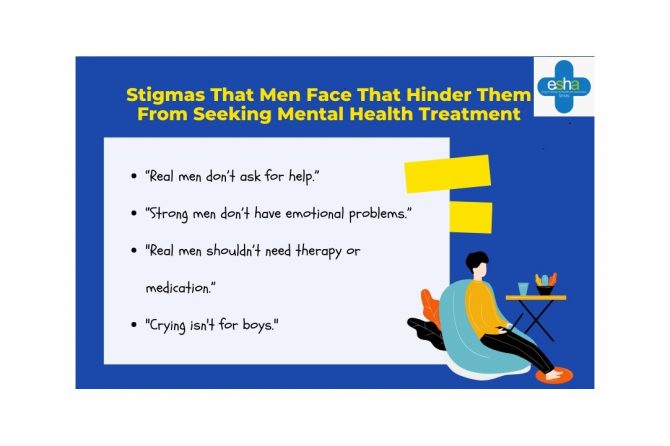
Men and Mental Health
Maintaining good mental health is equally as important as taking care of our physical well-being. It is an essential component for our overall survival, just like the air we breathe.
However, the conversation surrounding mental health differs between men and women. Men often face various reasons that hinder them from speaking up about their mental health problems, largely due to societal norms and the associated stigma surrounding masculinity.
Let’s consider some noteworthy statistics:
According to Mental Health America, approximately 6 million men in the United States experience depression every year.
The National Institute on Alcohol Abuse and Alcoholism reports that the annual number of men who lose their lives due to alcohol-related causes is 62,000, compared to 26,000 women.
Men are twice as likely than women to be a victim of a violent crime and depression and suicide are the leading causes of death among men
It’s important to understand that men may not always exhibit the stereotypical signs of depression, such as sadness and hopelessness. Instead, their struggles may manifest as anger or aggression, making it challenging to detect that something is wrong. Consequently, many men may miss out on receiving the necessary treatment to improve their well-being.
Given the prevalence of mental health issues and the risks associated with ignoring them, it is crucial to recognize the common barriers that men face when seeking help. Let’s explore the stigmas that hinder men from accessing the support they need.
As a society, we have perpetuated the narrative that men should adhere to an ideal of “being tough,” devoid of emotions, and unaffected by mental illness. It is high time we break free from this stigma and encourage a more open and accepting conversation about men’s mental health.
If you or someone you know would like to speak to a mental health professional you can find a comprehensive list in the ESHA Spain business directory
Leave a reply




Leave a reply